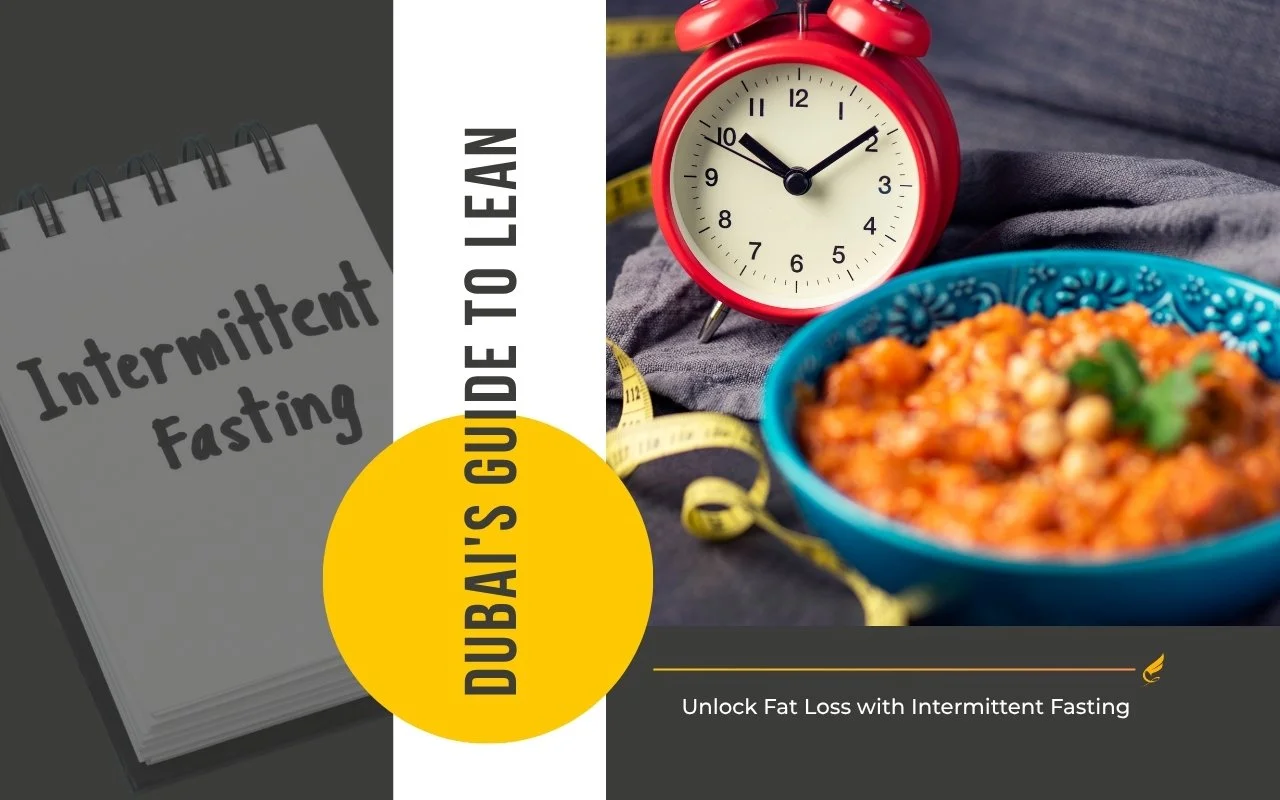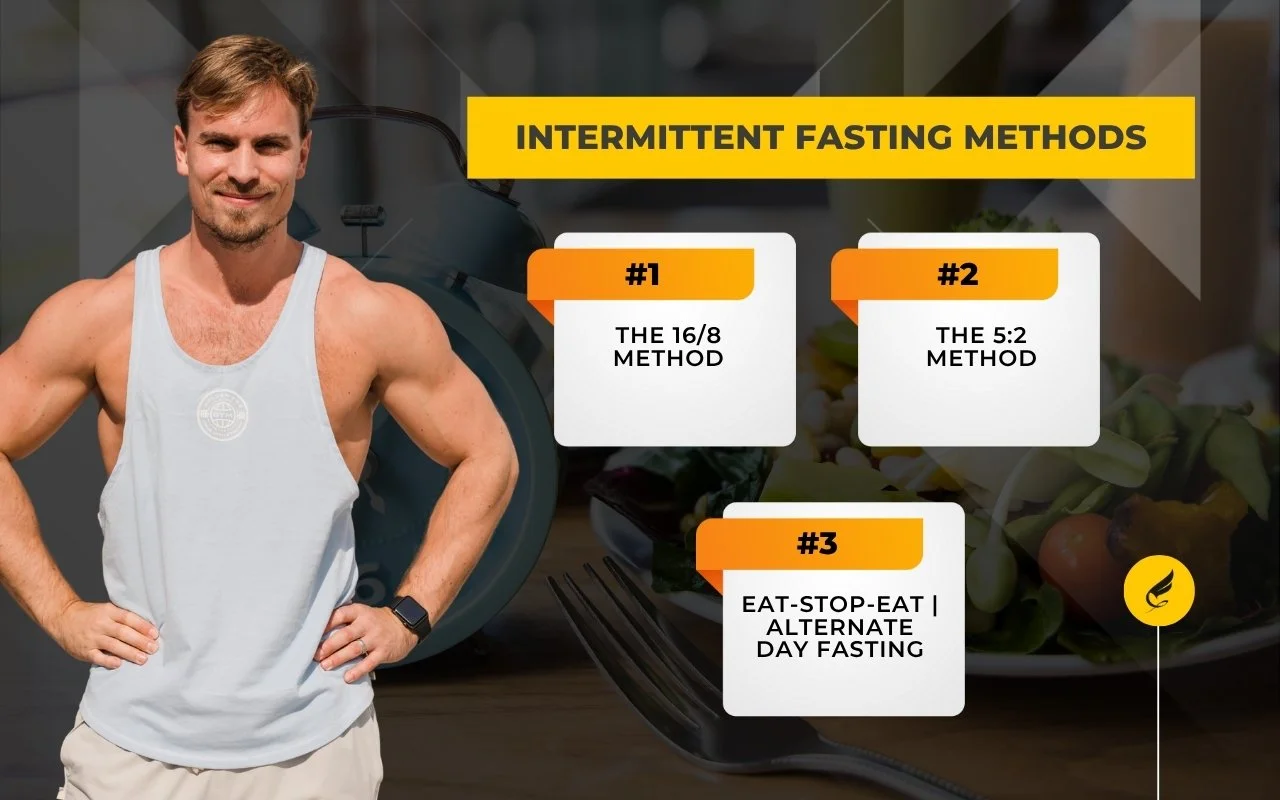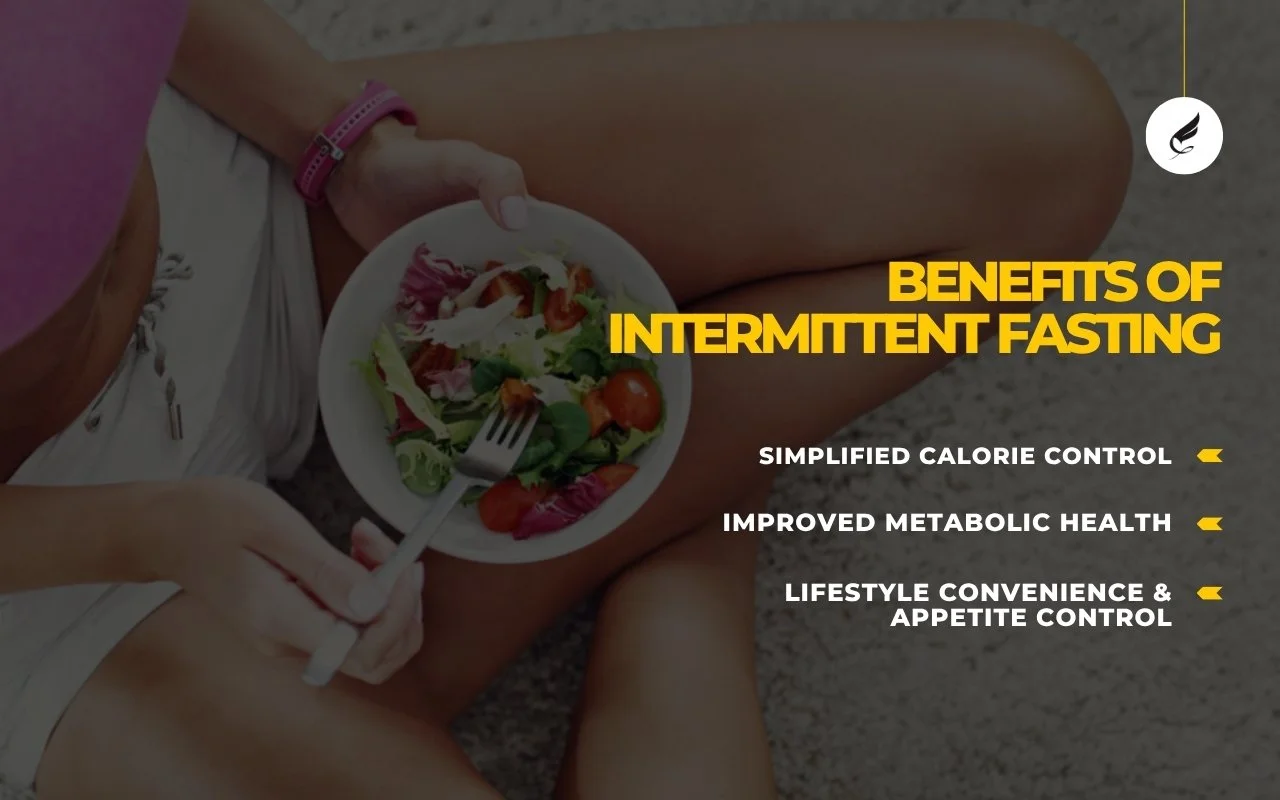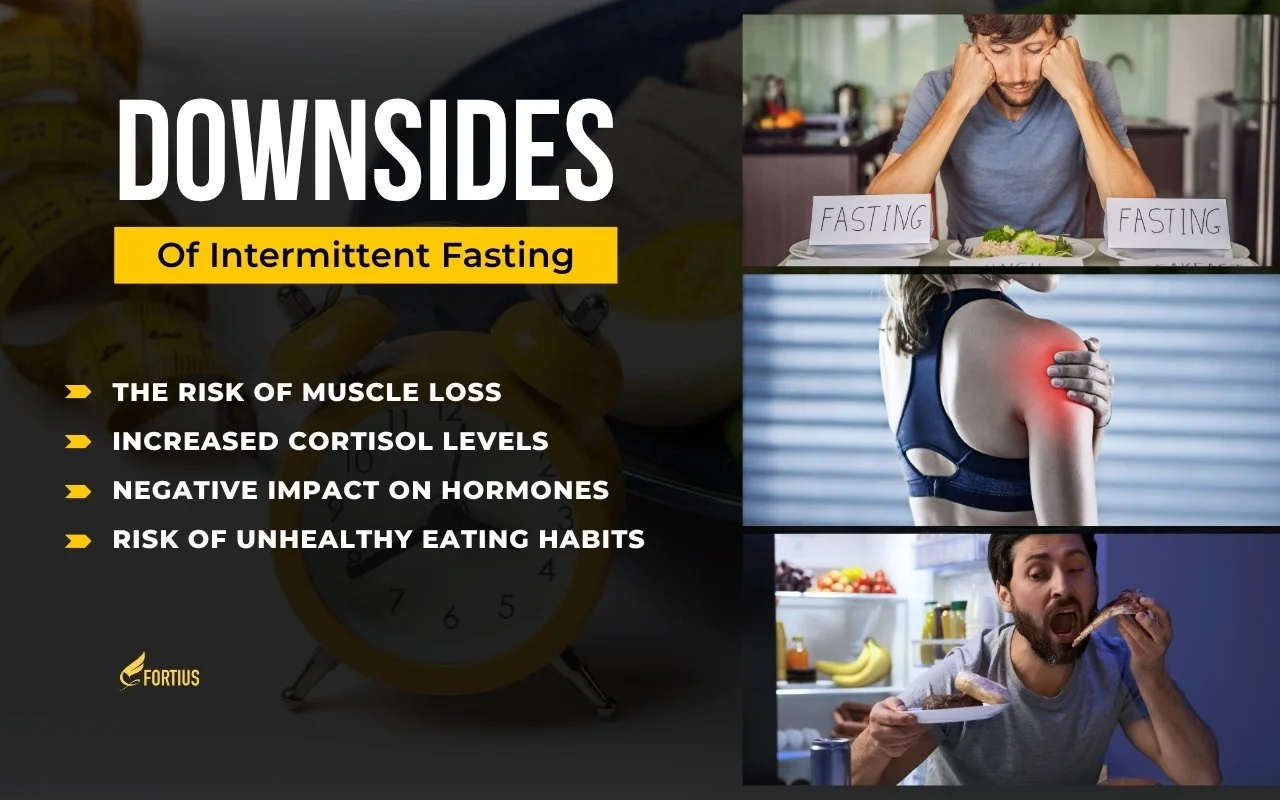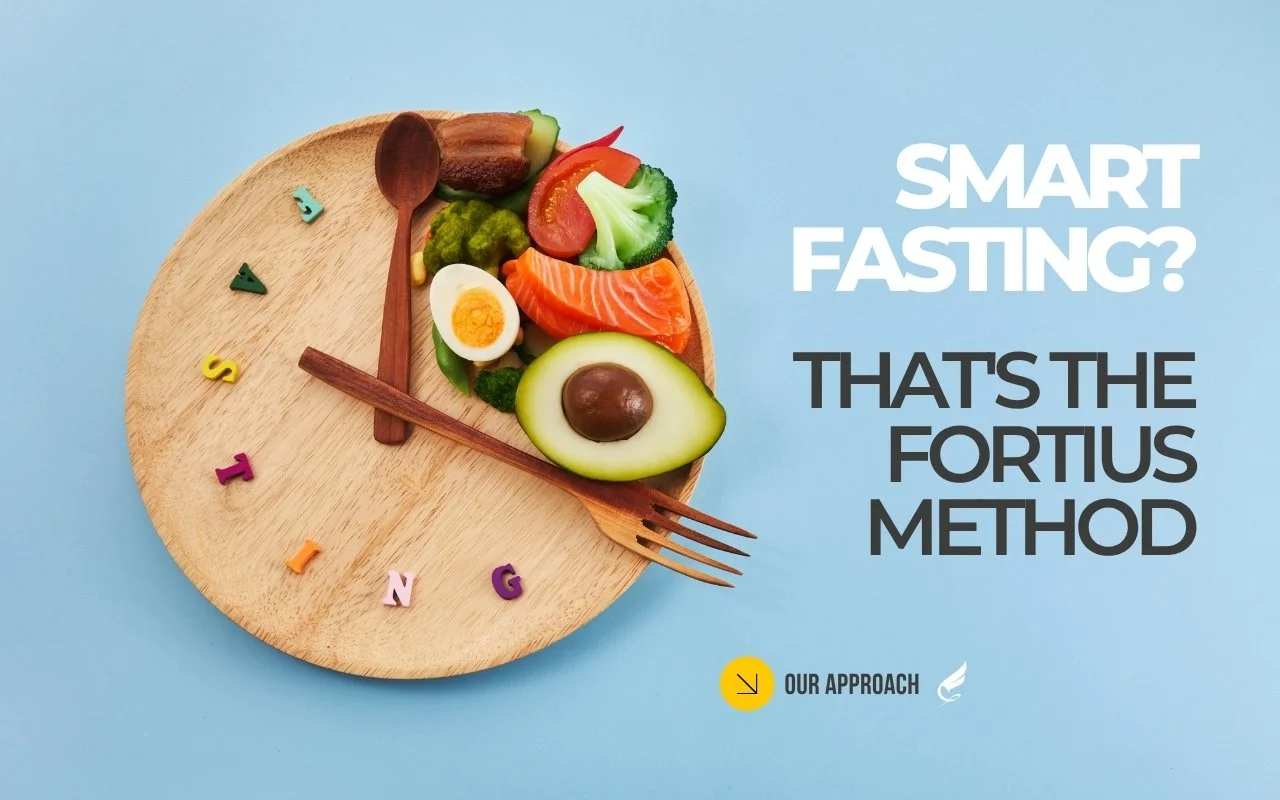Intermittent Fasting for Fat Loss: A Realistic Guide for Dubai Professionals
Intermittent Fasting (IF) is one of the most talked-about weight loss diets in the world. It’s praised by biohackers and wellness influencers as a miracle cure for everything from fat loss to longevity, often promising rapid weight loss. But what does the science actually say, and is this eating pattern a suitable strategy for a busy professional in a city like Dubai looking for sustainable weight loss?
The truth is, Intermittent Fasting is not magic. It’s simply a tool, an alternative to the traditional diet routine. And like any powerful tool, it can be used effectively to achieve great results, or it can be misused, disrupting hormonal balanceand causing more harm than good, much like the fad diets and crash diets we advise against.
While the intermittent fasting diet offers many potential health benefits, which you can explore in our introductory guide to the 16/8 method, this article will focus on the critical details. One key aspect to consider is portion control, which plays a major role in achieving sustainable results. This is the Fortius guide to a realistic weight loss journey: a science-backed look at its pros, its cons, and how to implement it intelligently to support your goals without sacrificing your health or hard-earned muscle mass.
What is Intermittent Fasting?
First, let's be clear: Intermittent Fasting is not a traditional diet. It doesn't tell you what healthy foods to eat; it tells you when to eat. It is an eating pattern that cycles between periods of voluntary fasting and non-fasting (eating windows).
There are several popular methods:
The 16/8 Method: The most common approach. You have a 16-hour fast and an 8-hour window for your food intake.
The 5:2 Method: Involves eating normally five days a week and significantly reducing calorie intake on two non-consecutive days.
Eat-Stop-Eat / Alternate Day Fasting: This involves full 24-hour fasting periods once or twice per week.
For the purpose of this guide, we will focus on the 16/8 method, as it is the most practical for busy professionals looking to improve their body composition.
The Potential Benefits (The "Hype")
When done correctly as part of a healthy lifestyle, IF can offer numerous health benefits, mostly as an indirect result of a structured schedule.
Simplified Calorie Control: For many, the biggest benefit is that a shorter eating window makes it easier to create a calorie deficit. By skipping a meal, you naturally lower your overall calorie intake, which is the fundamental requirement to lose weight and reduce body fat, particularly stubborn visceral fat. This makes weight management feel more effortless than constant calorie restriction.
Improved Metabolic Health: Studies suggest IF can improve insulin sensitivity, which enhances your body's ability to manage carbohydrates and can lead to improved metabolic health. A healthy metabolism is crucial for efficient fat burning.
Lifestyle Convenience & Appetite Control: For the busy professional, IF can simplify the day. It also may help regulate hunger hormones, leading to better appetite control throughout the day. Some research also points to benefits for brain health and focus.
The Critical Downsides (The "Reality")
This is where most online guides fall short if you want to lose weight fast. Intermittent fasting is not suitable for everyone and comes with significant potential cons if not managed with care.
The Risk of Muscle Loss: This is the biggest danger for your body composition. To maintain or build lean muscle mass, your body needs a regular supply of protein to stimulate muscle growth. Long fasting periods can lead to muscle loss, especially if your total daily protein intake is too low or poorly timed.
Increased Cortisol Levels: For individuals already dealing with high-stress jobs, adding a long fast can elevate cortisol. This requires excellent stress management skills, as high cortisol can lead to increased abdominal fat, fatigue, and poor recovery from regular exercise.
Negative Impact on Hormones (Especially for Women): Female hormonal balance is particularly sensitive to energy availability. Extended fasting can, in some cases, disrupt the menstrual cycle.
Risk of Unhealthy Eating Habits: For some, restricting food can create an unhealthy relationship with it, leading to binge eating once the window opens. It can be a slippery slope towards disordered eating if not approached mindfully.
The Fortius Method: How to Use IF Intelligently
If you want to experiment with the 16/8 method, you must follow a structured protocol to get the benefits while mitigating the risks.
Here is a simple, 3-step guide for a Dubai professional to follow:
Step 1: Define Your 8-Hour Eating Window Choose a window that works with your schedule. For many, 1 PM to 9 PM is effective. This allows for business lunches and family dinners. Do not shorten this window further.
Step 2: Prioritize a Balanced Diet and Structure Your Meals This is the non-negotiable rule for maintaining muscle mass. You must consume your entire daily protein target from nutrient-dense foods and whole foods within your 8-hour window.
Your First Meal (e.g., 1 PM): This meal must be substantial. It should contain at least 40-50 grams of high-quality, lean proteins to stop muscle breakdown from the fast.
Example: A large grilled chicken breast salad with olive oil and other healthy fats.
Your Second Meal (e.g., 8:30 PM): Your final meal should consist of balanced meals rich in protein and fiber to promote satiety.
Example: A fillet of salmon with steamed vegetables and quinoa.
Snack (Optional): If needed, a high-protein snack can be consumed. Tracking food intake carefully is key here.
Step 3: Align Your Training with Your Eating Window The best time to train is typically in a fasted state, shortly before your first meal. Combine your intermittent fasting diet with both strength training and cardiovascular exercise for best results.
Ideal Scenario: Train from 11:30 AM to 12:30 PM, then consume your first high-protein meal at 1 PM. This floods your muscles with nutrients when they are most receptive.
Is Intermittent Fasting Right for You?
Intermittent Fasting can be a useful tool, but it is not a magic pill. The principles of a calorie deficit and adequate protein intake are still what drive fat loss.
For many busy professionals, a more balanced diet of 3-4 structured meals is more sustainable and less stressful. However, if you choose to try IF, you must do it intelligently and as part of developing long-term healthy habits.
The best approach is always one that is tailored to your unique body, lifestyle, and weight goals.
If you're ready to move beyond generic strategies and get a plan that's 100% built for you, book your free, no-obligation consultation with a Fortius expert.

